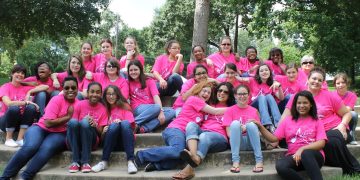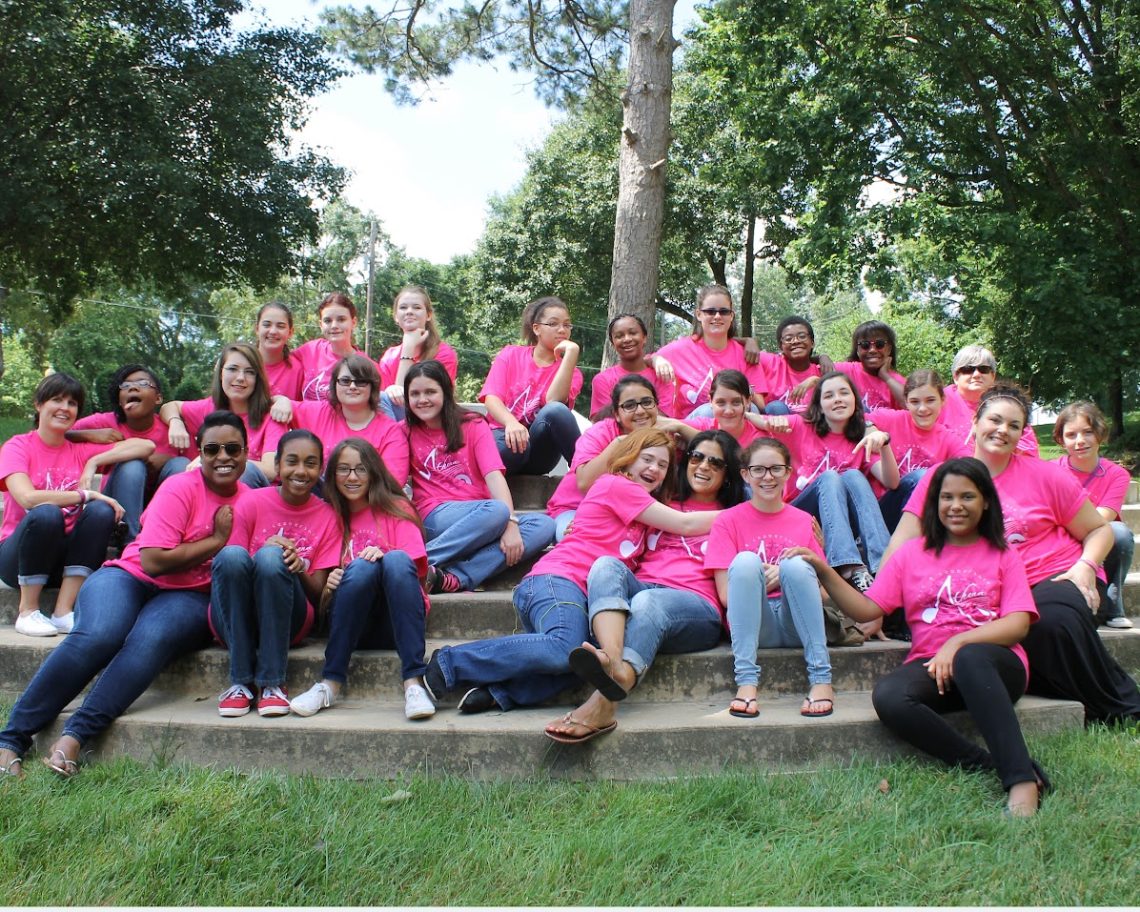We have had the privilege of conducting middle and high school students in honor ensembles all over the country. Participating young women would often ask if we were actually high school band directors in charge of all things for the program, including marching band. They were not asking because they questioned our credentials. They asked because they sought advice on how to be a leader in their school band programs. Many of them expressed that their band directors saw something in them they did not yet see. Consistently, they would tell stories of how they had been named drum major or section leader or another leadership position. The young women were worried because they were shy, or small, or felt they didn’t possess the confidence to do the job. It was never a question of skill…they were honor band musicians. Why would they feel their band director was wrong about their leadership potential? From this came the idea of the Athena Music and Leadership Camp. We created a place for middle and high school young women to grow and blossom both as leaders and musicians. We will explore how empowering your young women “through their music” can help improve your overall music program.
The Issue
There is research indicating gender differences in the areas of self-assessment, self-promotion, self-awareness, and actionable feedback. Although there is no gender gap when evaluating others, young women may underestimate their performance when evaluating themselves. In addition, studies show women are less likely to self-promote than men. What does this mean when asking students if they are interested in leadership positions? How will this manifest when students are asked to identify strengths and weaknesses?
Women may more quickly align their confidence and self-awareness with peer feedback. Research says women will also adjust according to feedback received, positive or negative. Consider how this may affect the young women in your program if offered criticism from peers regarding leadership abilities, musicianship, or physical characteristics.
Bridging The Gap
In 2009, the Athena Music and Leadership program was created as a space for young women to achieve musical excellence while improving confidence and leadership skills. Led by successful, professional women in music, the faculty serve as positive role models. Although many Athena alumnae may major in music education, the goal is not to create the next generation of band directors, but to develop the next generation of leaders in their field of choice. Participants identify who they are as musicians, know they can create music at a high level, and recognize that through their music, they can do anything. The program is designed to connect middle schoolers who are just beginning to learn how to play, high schoolers who are perfecting their skills, and college students who are learning to teach and inspire, with professionals who have been teaching anywhere from one to 40+ years. The signature leadership and empowerment seminars embrace inclusivity and collaboration while shaping confident, well-rounded individuals who will contribute positively to their band programs and to society.
How Directors Can Help
Band is one of the few classes where the teacher witnesses a student’s musical and personal growth over an extended period. Because of this, directors have the unique opportunity to make a tremendous impact on a student’s life. Recognizing that all our students will not be music educators, experiences in band, orchestra, or choir can help develop leadership potential that may be used in all professions. Here are a few ideas regarding positive ways to influence the lives of the young women in your classes.
Recognize: Appreciate quiet leadership in girls. Listen to your young women’s voices regardless of how loud or quiet they may be. Understand that young women may not exhibit traditionally “masculine” leadership qualities. This includes assertiveness, competitiveness, and expressing oneself confidently. Look for the quiet leaders in the ensemble while understanding gender is not an indicator for success or aptitude.
Encourage: Approach and encourage young women who have leadership potential. Ask them what they are most proud of and what skills they want to develop. Listen to what they have to say then help them achieve those goals.
Develop: Leaders are created, not born. Help students identify their personal strengths and recognize their areas for growth. Although leadership training and development is for all, there may be some skills approached differently by girls. Recognize those areas and adjust your training plans.
Include: Be intentional about the inclusion of young women on your leadership teams, even at the highest levels. Try your best to ensure the team reflects your membership. Be mindful of your interactions with women in leadership positions. Provide opportunities for your students to see women as leaders and role models.
Dr. Myra Rhoden is the founder of the Athena Music and Leadership Camp an all-girls music program created to promote musical excellence while emphasizing leadership skills. She is honored to be a member of the Phi Beta Mu International Bandmasters Fraternity, serves as a Conn Selmer Educational Clinician, and was elected to the prestigious American Bandmasters Association in 2023.
Dr. Zandra Bell-McRoy has been a music educator since 2002. She maintains an active research presence, being invited to present at conferences and symposia across the country. Dr. Bell-McRoy has numerous professional affiliations and serves as a flutist with Tara Winds and is a member of the Phi Beta Mu International Bandmasters Fraternity.




















